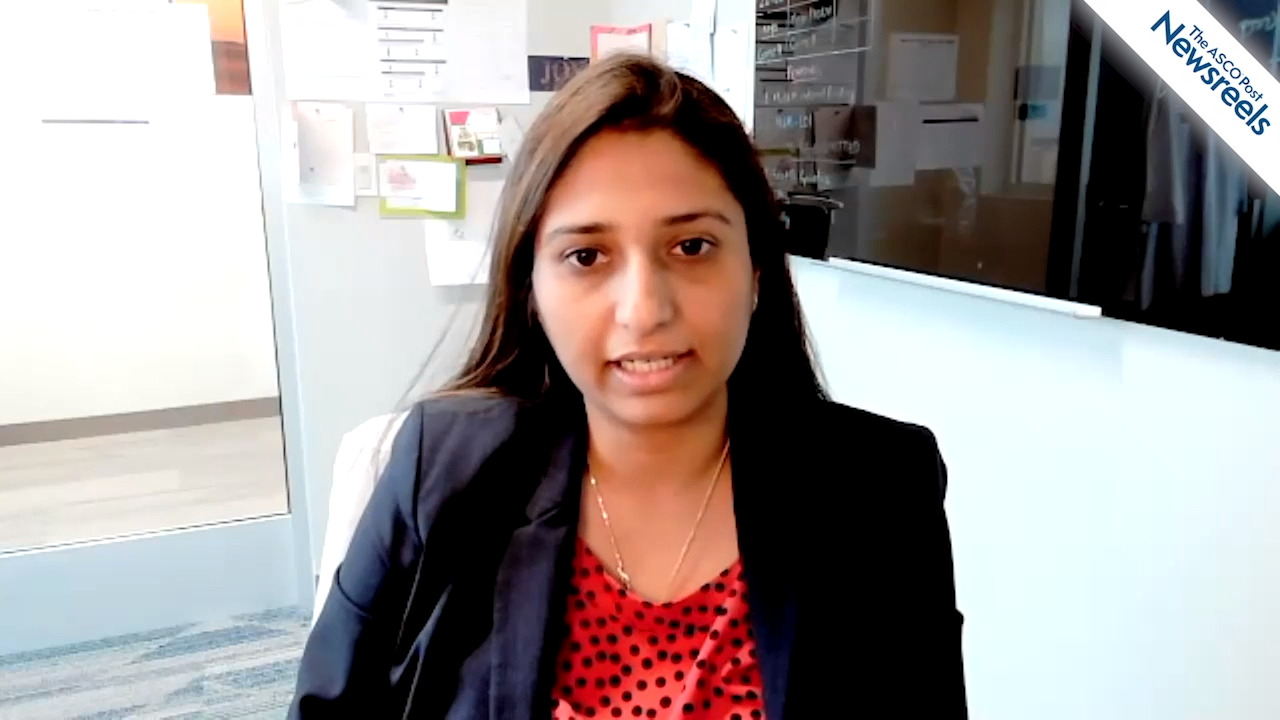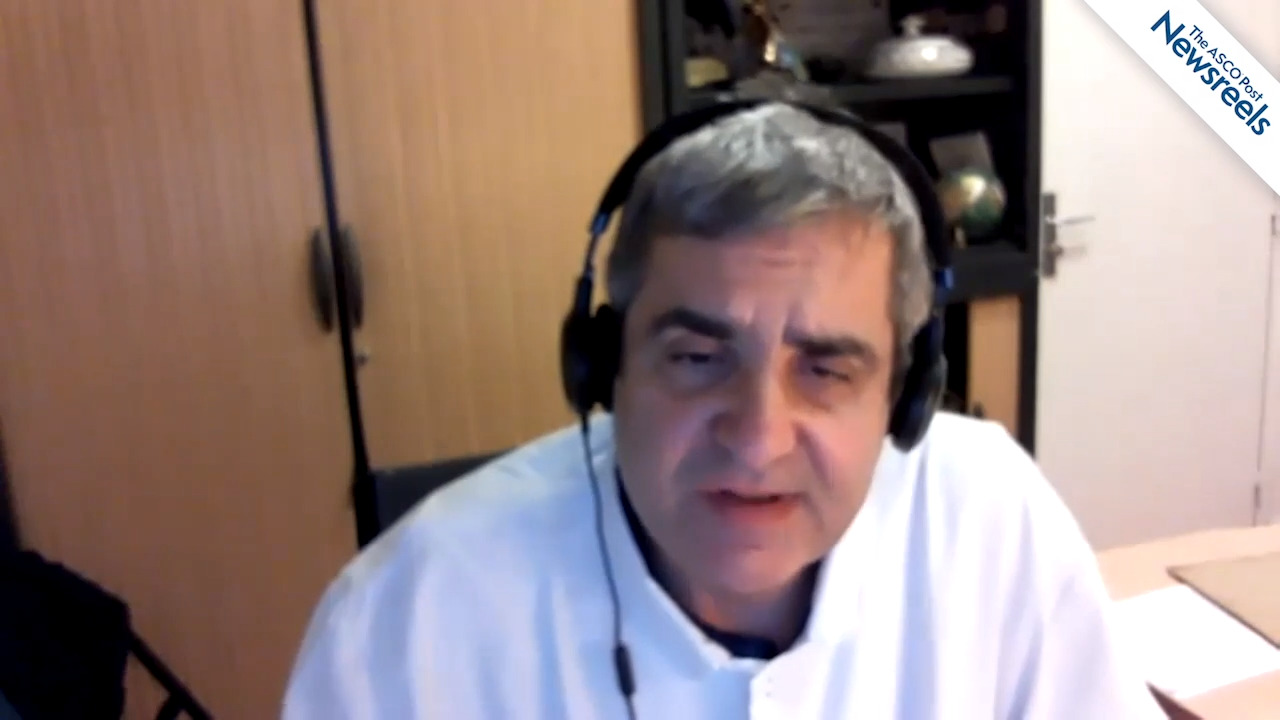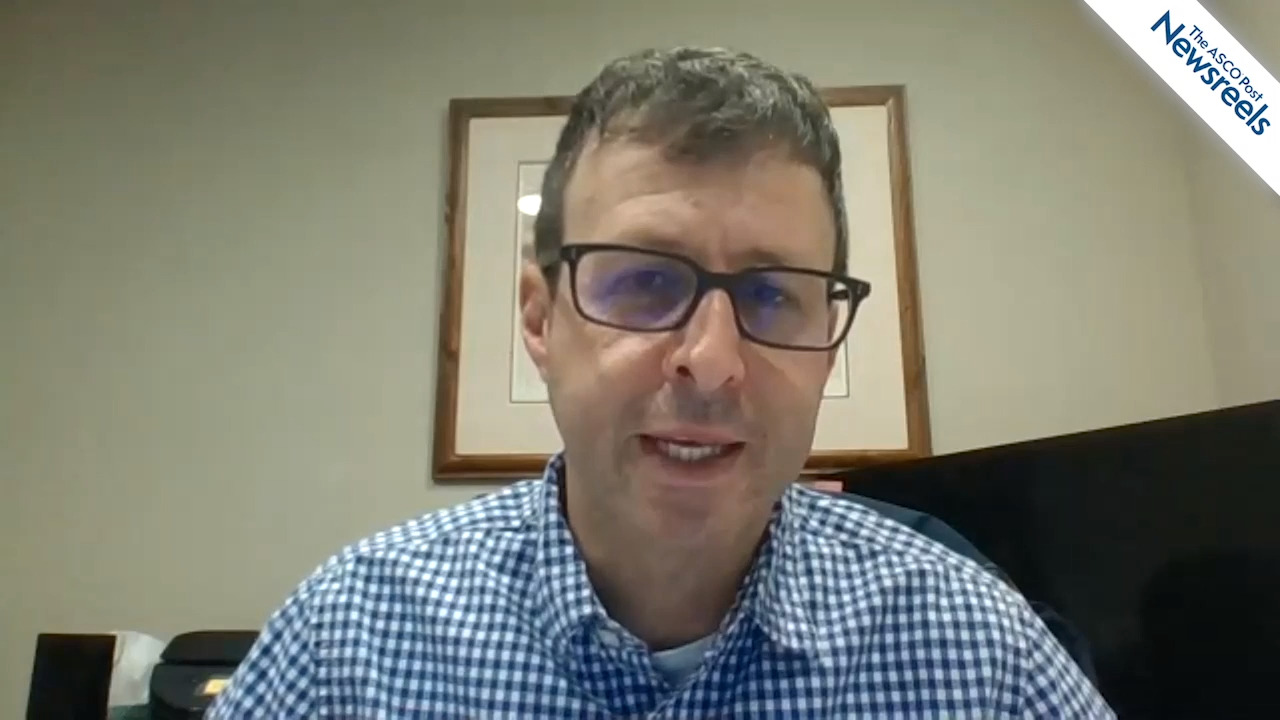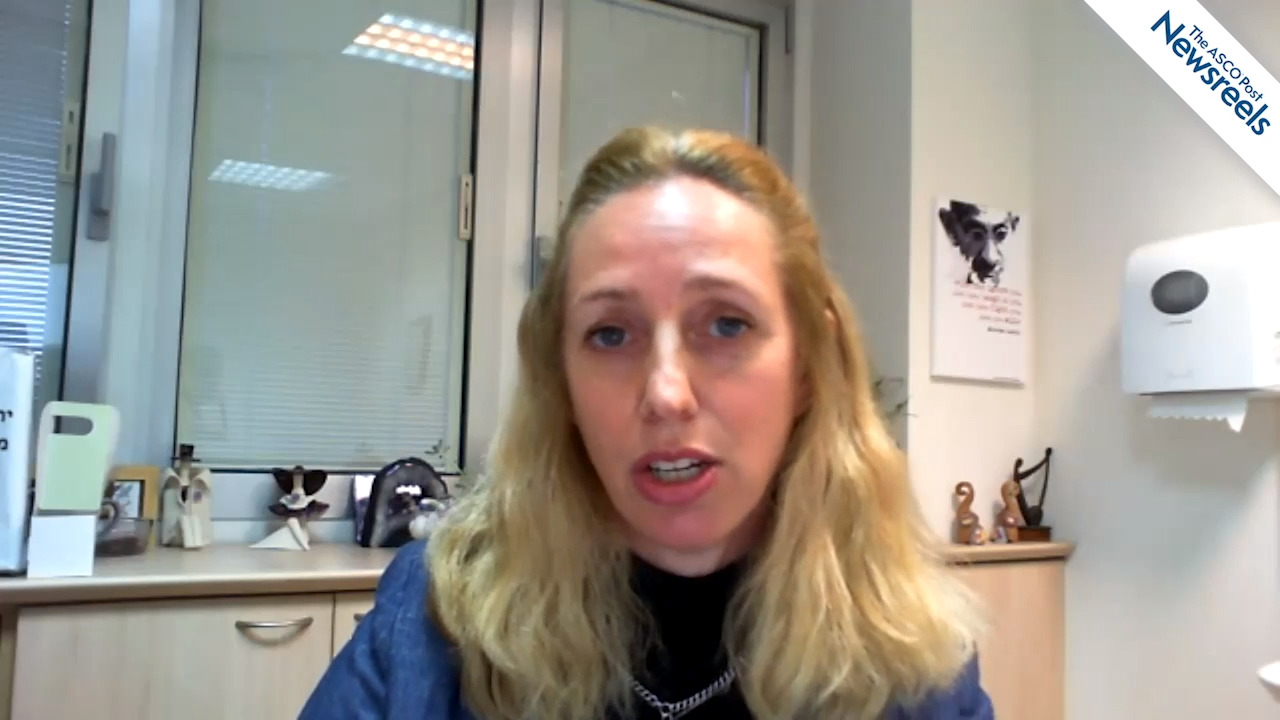Zev A. Wainberg, MD, on Gastric/Gastroesophageal Junction Adenocarcinoma: Bemarituzumab and FOLFOX
2021 Gastrointestinal Cancers Symposium
Zev A. Wainberg, MD, of UCLA Medical Center, discusses phase II results from the FIGHT study, which combined bemarituzumab with modified FOLFOX6 in first-line treatment of advanced gastric/gastroesophageal junction adenocarcinoma. This is reportedly the first randomized trial of any FGFR inhibitor, validating this target in gastric cancer (Abstract 160).
The ASCO Post Staff
Rutika Mehta, MD, MPH, of the H. Lee Moffitt Cancer Center and Research Institute, discusses the 3-year regression-free and overall survival results from the JACCRO study, which compared the efficacy of S-1, an oral prodrug of fluorouracil, vs S-1 plus docetaxel after curative resection of stage III gastric cancer (Abstract 159).
The ASCO Post Staff
Thierry André, MD, of Hôpital Saint-Antoine, discusses results from the GARNET study, which showed that dostarlimab, an anti–PD-1 antibody, demonstrated durable antitumor activity in patients with mismatch repair–deficient colorectal and noncolorectal solid tumors. No new safety signals were detected, and most treatment-related adverse events were of a low grade (Abstract 9).
The ASCO Post Staff
Richard S. Finn, MD, of the UCLA Medical Center, discusses updated results from the IMbrave 150 study, which showed atezolizumab plus bevacizumab provides the longest overall survival seen in a front-line phase III study in advanced hepatocellular carcinoma, confirming this combination as the standard of care for patients with previously untreated, unresectable disease (Abstract 267).
The ASCO Post Staff
Talia Golan, MD, of the Oncology Institute, Sheba Medical Center, discusses phase III results from the POLO trial, which explored the question of whether maintenance olaparib could improve overall and progression-free survival for patients with germline BRCA-mutated metastatic pancreatic cancer (Abstract 378).
The ASCO Post Staff
Tenna V. Henriksen, PhD Candidate, of Aarhus University, discusses her findings on how circulating tumor DNA may help assess recurrence risk and the benefit of adjuvant therapy, and more quickly detect early relapse after treatment in patients with colorectal cancer (Abstract 11).





